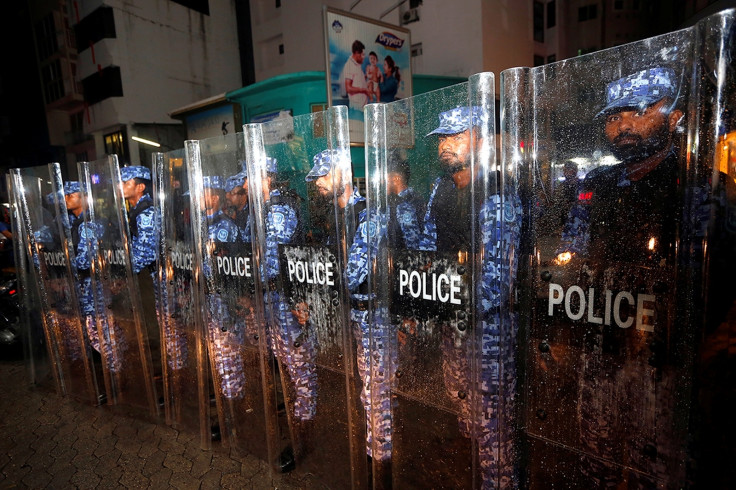Maldives: Yameen's first blow in state of emergency is the arrest of Supreme Court judges
Chief Justice Abdulla Saeed and judge Ali Hameed were arrested by Yameen's government as crisis deepens.
Maldivian President Abdulla Yameen's first order after declaring a state of emergency was to arrest two Supreme Court judges, including the chief justice in the early hours of Tuesday, 6 February, as chaos engulfed the Indian Ocean archipelago in recent days.
Chief Justice Abdulla Saeed and judge Ali Hameed were detained by security forces after police released a brief statement accusing the duo of corruption. Security forces stormed the Supreme Court complex to take the jurists into custody. This high-profile crackdown followed the arrest of ex-president Maumoon Abdul Gayoom, an estranged half-brother of Yameen.
The starting point of the turmoil was when the atoll nation's Supreme Court pronounced a judgement releasing key political prisoners, including Yameen's opponent and former president, Mohamed Nasheed, who is currently in exile in Sri Lanka. This verdict triggered a series of repercussions including a brief spell of violence in the country.
With the tourism industry being central to the economy, Maldives has been experiencing a bout of bad coverage in the past few days and travel advisories being issued from foreign countries.
Yameen's opposition has called it a "purge" by the sitting administration as he continues to crack down on any dissent — an element which has come to characterise the government since it came to power in 2013.
"During this time, though certain rights will be restricted, general movements, services and businesses will not be affected," the presidential office said in a statement announcing the state of emergency, which will be in effect for 15 days. Under the emergency measure, the government has assumed sweeping powers and curbed judicial powers or immunity.
While reading out the decree, Legal Affairs Minister Azima Shakoor said: "The government does not believe that the Supreme Court ruling to release the political prisoners can be enforced," adding that the showdown between the Supreme Court and government has "resulted in the disruption of the functions of the executive power, and the infringement of national security and public interest".























